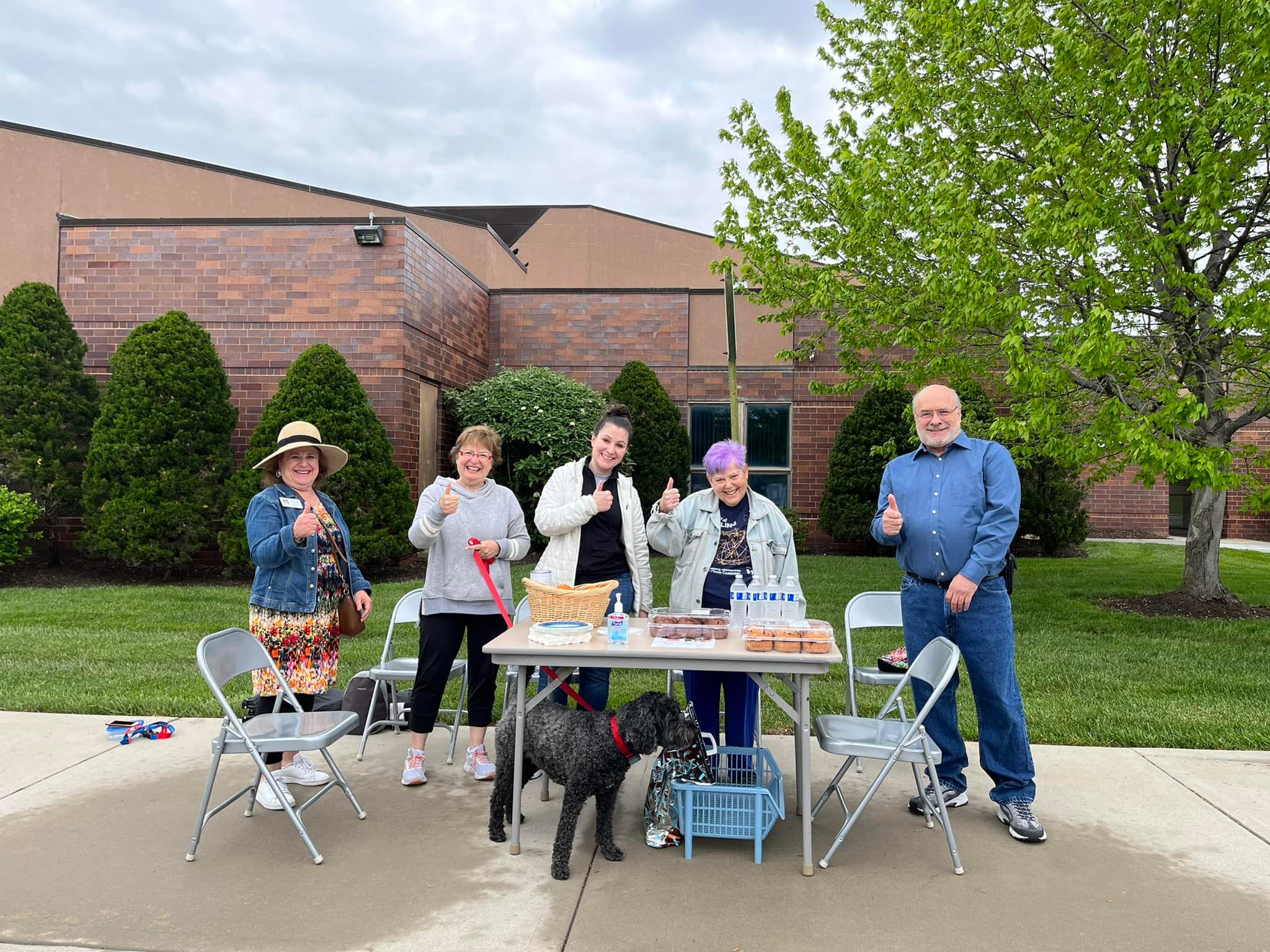Jane Larison’s first experience with Judaism was attending a friend’s bar mitzvah when she was 12 or 13 years old at Temple Beth Shalom in Spokane, Washington.
“Immediately I just felt like I belonged there. It was just amazing, even though I knew nothing about what was going on. It just was like, ‘Oh, this is great,’” she said.
The more she was exposed to Judaism over the next few years, “I fell in love with the ritual, the rituals of the Jewish traditions. And I had Judaism in my mind from that point on,” she said.
Fast forward a few decades, and Larison still had Judaism on her mind. She’d been thinking about converting, but it was the death of a Jewish classmate that pushed her to finally pick up the phone and talk to a rabbi about beginning the conversion process.
Larison started working with Rabbi Josh Leighton, formerly of The Temple, Congregation B’nai Jehudah, around Hanukkah of 2020. At his encouragement, she joined the Rabbinical Association of Greater Kansas City’s annual community-wide conversion class, which began late last August. On May 26 of this year, she went before the beit din (a panel of three rabbis) and into the mikvah — the final steps of her conversion process.
Larison was one of approximately 25 students in the Rabbinical Association’s conversion class, and one of many who was converting for reasons other than the traditional “converting for marriage” (although that is still common).
According to a 2021 article, Tablet magazine reported that in a survey of 100 rabbis, many reported "that their converts are less likely than in earlier years to be converting ‘for’ a partner, and that many do not even have a Jewish partner."
Annette Fish, the Rabbinical Association’s administrator/program director, said conversion class candidates have given multiple reasons for choosing Judaism.
"The common link is that individuals found attraction and meaning in Jewish traditions, culture, ritual practices, and belonging to a Jewish community, etc.," she said. "They are considering conversion and desire to live a Jewish life."
There have been 300 individuals who completed the conversion process since the program began in 2003. Some candidates attend the class with their significant other, while others attend alone. Some are already married to Jews and part of a Jewish family, or they are divorced or widowed and were married to Jews. Some are having or are expecting children and want their children raised in the Jewish faith. Others are in relationships with Jews and/or engaged to be married. And a number of candidates, like Larison, are on an individual personal spiritual journey.
Rabbi Monica Kleinman, Director of Lifelong Learning at Congregation Beth Torah, which holds its own “Introduction to Jewish Living” class (separate from the Rabbinical Association's class), recounted one older conversion student who had married a Jewish man and raised Jewish kids, but didn’t convert until later in life, after her first husband had died and she had married her second Jewish husband.
"There are a lot of people saying, ‘I'm already walking the walk,’" she said.
Rabbi Kleinman noted that even among those who are converting because of a Jewish partner, nowadays it’s less because the partner asked them to convert and more because they decided to on their own.
“As a Reform rabbi, very few times it’s the Jewish partner asking them to convert,” she said. “More often, a Jewish partner will want to have a Jewish home and the more the non-Jewish partner learns, the more they want to convert.”
While Larison sees the benefit of going through the conversion process with a partner, she appreciates the unique experience of converting as an individual.
“If I had gone through it with another person, I don't know that it would have been as personal for me,” she said. “Going it alone, it's like it's you and God doing it together.”
Just as the reasons for converting are varied, so are the paths to finding Judaism. Some people find Judaism on their own by exploring different religions. Some people find the community first, start attending events and services, and then get into the religion. And many, like Larison, meet people who are Jewish — whether a friend, classmate, neighbor or coworker — who expose them to the religion.
The pandemic has also played a part in conversions. According to the Tablet article, many rabbis nationwide have seen an uptick in those interested in conversion, and Rabbi Kleinman is among them.
“I've seen, from adolescents on up to adults, that people have really evaluated their lives during the pandemic and are looking to make changes, whether that’s eating right and exercising or converting to Judaism,” she said.
“People are taking stock of what is crucial and what’s core, and are now reaching the point where they want to do something about it.”




